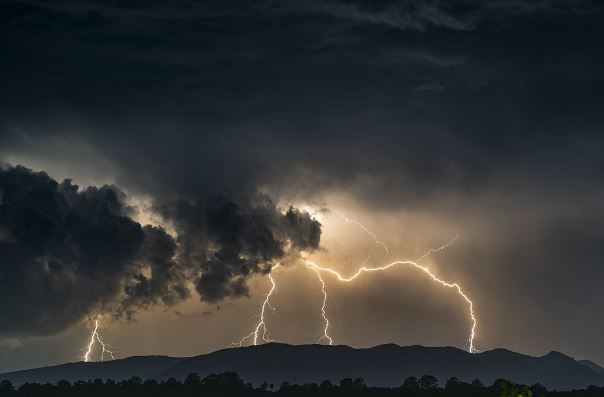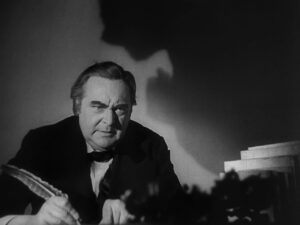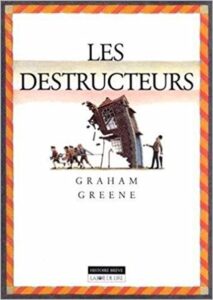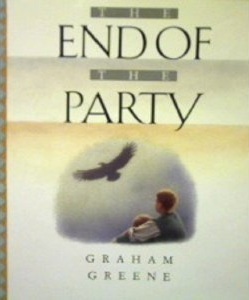The Storm – Kate Chopin
“The Storm” is a short story which has been penned by Kate Chopin, an American author in the late 1800s. The story was penned in 1898 but the author decided that it was too scandalous to publish in that era and that the authors would reject the story for fear of backlash. She is best known today for the novel The Awakening which was published in 1899.
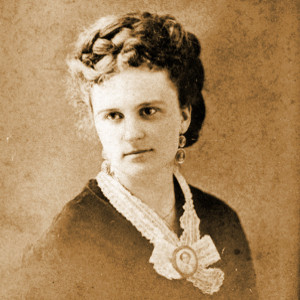
The Storm follows a very simple story line where there is a terrible storm and two ex lovers are forced in the woman’s home to escape the storm. They end up having an affair and this is metaphorically shown against the background of the storm.
This story is included into the high school curriculum of the USA and is read by hundreds of thousands of children across the world. You can download a free PDF copy of “The Storm” right below and also download a worksheet with many questions and answers.
Table of contents – The Storm
- The Storm Story
- Plot, Summary and Analysis – The Storm
- Questions and Answers – The Storm
- The Storm – Worksheets PDF
- The Storm – PDF
Other famous short stories which you can read
- Désirée’s Baby – Kate Chopin
- The blue hotel – Charles W. Chesnutt
- The Wife of His Youth
- The Revolt of Mother
- The Minister’s Black Veil
- The Purloined Letter – Edgar Allan Poe
Part I – The storm
The leaves were so still that even Bibi thought it was going to rain. Bobint, who was accustomed to converse on terms of perfect equality with his little son, called the child’s attention to certain sombre clouds that were rolling with sinister intention from the west, accompanied by a sullen, threatening roar.
They were at Friedheimer’s store and decided to remain there till the storm had passed. They sat within the door on two empty kegs. Bibi was four years old and looked very wise.
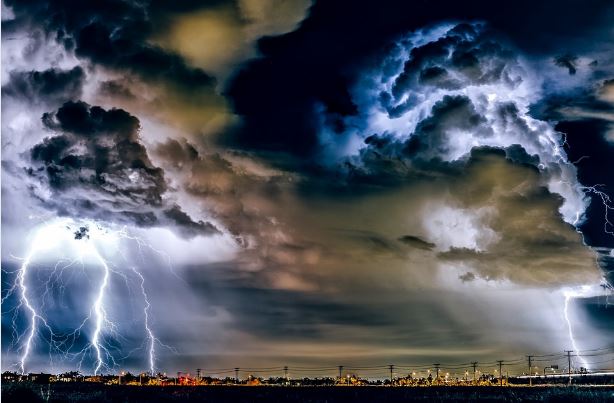
“Mama’ll be ‘fraid, yes, he suggested with blinking eyes.
“She’ll shut the house. Maybe she got Sylvie helpin’ her this evenin’,” Bobint responded reassuringly.
“No; she ent got Sylvie. Sylvie was helpin’ her yistiday,’ piped Bibi.
Bobint arose and going across to the counter purchased a can of shrimps, of which Calixta was very fond. Then he returned to his perch on the keg and sat stolidly holding the can of shrimps while the storm burst.
It shook the wooden store and seemed to be ripping great furrows in the distant field. Bibi laid his little hand on his father’s knee and was not afraid.
Part II – Calixta and Alce Laballire
Calixta, at home, felt no uneasiness for their safety. She sat at a side window sewing furiously on a sewing machine. She was greatly occupied and did not notice the approaching storm. But she felt very warm and often stopped to mop her face on which the perspiration gathered in beads.
She unfastened her white sacque at the throat. It began to grow dark, and suddenly realizing the situation she got up hurriedly and went about closing windows and doors.
Out on the small front gallery she had hung Bobint’s Sunday clothes to dry and she hastened out to gather them before the rain fell. As she stepped outside, Alce Laballire rode in at the gate.
She had not seen him very often since her marriage, and never alone. She stood there with Bobint’s coat in her hands, and the big rain drops began to fall. Alce rode his horse under the shelter of a side projection where the chickens had huddled and there were plows and a harrow piled up in the corner.
“May I come and wait on your gallery till the storm is over, Calixta?” he asked.
Come ‘long in, M’sieur Alce.”
His voice and her own startled her as if from a trance, and she seized Bobint’s vest. Alce, mounting to the porch, grabbed the trousers and snatched Bibi’s braided jacket that was about to be carried away by a sudden gust of wind.
He expressed an intention to remain outside, but it was soon apparent that he might as well have been out in the open: the water beat in upon the boards in driving sheets, and he went inside, closing the door after him. It was even necessary to put something beneath the door to keep the water out.
“My! what a rain! It’s good two years sence it rain’ like that,” exclaimed Calixta as she rolled up a piece of bagging and Alce helped her to thrust it beneath the crack.
She was a little fuller of figure than five years before when she married; but she had lost nothing of her vivacity. Her blue eyes still retained their melting quality; and her yellow hair, dishevelled by the wind and rain, kinked more stubbornly than ever about her ears and temples.
The rain beat upon the low, shingled roof with a force and clatter that threatened to break an entrance and deluge them there. They were in the dining room the sitting room the general utility room. Adjoining was her bed room, with Bibi’s couch along side her own. The door stood open, and the room with its white, monumental bed, its closed shutters, looked dim and mysterious.
Alce flung himself into a rocker and Calixta nervously began to gather up from the floor the lengths of a cotton sheet which she had been sewing.
lf this keeps up, Dieu sait if the levees goin’ to stan it!” she exclaimed.
“What have you got to do with the levees?”
“I got enough to do! An’ there’s Bobint with Bibi out in that storm if he only didn’ left Friedheimer’s!”
“Let us hope, Calixta, that Bobint’s got sense enough to come in out of a cyclone.”
Part II – The storm of lust
She went and stood at the window with a greatly disturbed look on her face. She wiped the frame that was clouded with moisture. It was stiflingly hot. Alce got up and joined her at the window, looking over her shoulder.
The rain was coming down in sheets obscuring the view of far-off cabins and enveloping the distant wood in a gray mist. The playing of the lightning was incessant. A bolt struck a tall chinaberry tree at the edge of the field. It filled all visible space with a blinding glare and the crash seemed to invade the very boards they stood upon.
Calixta put her hands to her eyes, and with a cry, staggered backward. Alce’s arm encircled her, and for an instant he drew her close and spasmodically to him.
“Bont!” she cried, releasing herself from his encircling arm and retreating from the window, the house’ll go next! If I only knew w’ere Bibi was!” She would not compose herself; she would not be seated.
Alce clasped her shoulders and looked into her face. The contact of her warm, palpitating body when he had unthinkingly drawn her into his arms, had aroused all the old-time infatuation and desire for her flesh.
“Calixta,” he said, “don’t be frightened. Nothing can happen. The house is too low to be struck, with so many tall trees standing about. There! aren’t you going to be quiet? say, aren’t you?”
He pushed her hair back from her face that was warm and steaming. Her lips were as red and moist as pomegranate seed. Her white neck and a glimpse of her full, firm bosom disturbed him powerfully.
As she glanced up at him the fear in her liquid blue eyes had given place to a drowsy gleam that unconsciously betrayed a sensuous desire. He looked down into her eyes and there was nothing for him to do but to gather her lips in a kiss. It reminded him of Assumption.
“Do you rememberin Assumption, Calixta?” he asked in a low voice broken by passion. Oh! she remembered; for in Assumption he had kissed her and kissed and kissed her; until his senses would well nigh fail, and to save her he would resort to a desperate flight.
If she was not an immaculate dove in those days, she was still inviolate; a passionate creature whose very defenselessness had made her defense, against which his honor forbade him to prevail. Now well, now her lips seemed in a manner free to be tasted, as well as her round, white throat and her whiter breasts.
They did not heed the crashing torrents, and the roar of the elements made her laugh as she lay in his arms. She was a revelation in that dim, mysterious chamber; as white as the couch she lay upon. Her firm, elastic flesh that was knowing for the first time its birthright, was like a creamy lily that the sun invites to contribute its breath and perfume to the undying life of the world.
The generous abundance of her passion, without guile or trickery, was like a white flame which penetrated and found response in depths of his own sensuous nature that had never yet been reached.
When he touched her breasts they gave themselves up in quivering ecstasy, inviting his lips. Her mouth was a fountain of delight. And when he possessed her, they seemed to swoon together at the very borderland of life’s mystery.
He stayed cushioned upon her, breathless, dazed, enervated, with his heart beating like a hammer upon her. With one hand she clasped his head, her lips lightly touching his forehead. The other hand stroked with a soothing rhythm his muscular shoulders.
The growl of the thunder was distant and passing away. The rain beat softly upon the shingles, inviting them to drowsiness and sleep. But they dared not yield.
Part III – Bobint and Bibi
The rain was over; and the sun was turning the glistening green world into a palace of gems. Calixta, on the gallery, watched Alce ride away. He turned and smiled at her with a beaming face; and she lifted her pretty chin in the air and laughed aloud.
Bobint and Bibi, trudging home, stopped without at the cistern to make themselves presentable.
“My! Bibi, w’at will yo’ mama say! You ought to be ashame’. You oughta’ put on those good pants. Look at ’em! An’ that mud on yo’ collar! How you got that mud on yo’ collar, Bibi? I never saw such a boy!”
Bibi was the picture of pathetic resignation. Bobint was the embodiment of serious solicitude as he strove to remove from his own person and his son’s the signs of their tramp over heavy roads and through wet fields.
He scraped the mud off Bibi’s bare legs and feet with a stick and carefully removed all traces from his heavy brogans. Then, prepared for the worst the meeting with an over-scrupulous housewife, they entered cautiously at the back door.
Calixta was preparing supper. She had set the table and was dripping coffee at the hearth. She sprang up as they came in.
“Oh, Bobint! You back! My! But I was uneasy. W’ere you been during the rain? An’ Bibi? he ain’t wet? he ain’t hurt?” She had clasped Bibi and was kissing him effusively.
Bobint’s explanations and apologies which he had been composing all along the way, died on his lips as Calixta felt him to see if he were dry, and seemed to express nothing but satisfaction at their safe return.
“I brought you some shrimps, Calixta,” offered Bobint, hauling the can from his ample side pocket and laying it on the table.
“Shrimps! Oh, Bobint! you too good fo’ anything!” and she gave him a smacking kiss on the cheek that resounded, “J’vous rponds, we’ll have a feas’ to-night! umph-umph!”
Bobint and Bibi began to relax and enjoy themselves, and when the three seated themselves at table they laughed much and so loud that anyone might have heard them as far away as Laballire’s.
Part IV – The letter
Alce Laballire wrote to his wife, Clarisse, that night. It was a loving letter, full of tender solicitude. He told her not to hurry back, but if she and the babies liked it at Biloxi, to stay a month longer.
He was getting on nicely; and though he missed them, he was willing to bear the separation a while longer realizing that their health and pleasure were the first things to be considered.
Part V – The first free breath
As for Clarisse, she was charmed upon receiving her husband’s letter. She and the babies were doing well. The society was agreeable; many of her old friends and acquaintances were at the bay. And the first free breath since her marriage seemed to restore the pleasant liberty of her maiden days.
Devoted as she was to her husband, their intimate conjugal life was something which she was more than willing to forego for a while.
So the storm passed and everyone was happy.
Theme and moral of “The Storm”
The moral of the story “The Storm” written by Kate Chopin is that the expression of freedom, lust, happiness, and adultery does not always result in love or the failure of marriage. The themes are shown from the eyes of a woman in the 19th century which was not common since adultery was never discussed.
Another interesting theme of the story is to describe the sexual repression of women in the 19th century. Women were forced to hide their sensual natures and desire in order to maintain the motherly image that society demanded of them.
Summary of The Storm
The story starts off with Bobint and his four-year-old son Bibi who are at a store. A violent storm emerges and the father and son wait in the store until the storm passes. Bobint wants to surprise his wife Calixta and so buys her a can of shrimp.
Calixta is at home sewing when the storm arrives. She shuts the windows and goes out to retrieve her husband’s and her son’s clothes, which are hanging outside. There she sees Alce Laballire, one of her former lovers,riding a horse towards her house. He asks if he can come in and stay there until the storm abates.
He is reluctant to come in and stays outside until the storm becomes more violent. Alce sits in the rocker and waits. Calixta sees the storm through the window and the sheer intensity scares her so much that she nearly falls down.
Alce attempts to comfort her and they both remember the passion that they once felt once before. Alce reminds Calixta of their time at Assumption, and she also remembers the fond and passionate memories.
She ends up being overwhelmed with sexual passion. As the storm increases in intensity, so does the passion of the two former lovers. The sexual encounter that rages between Alce and Calixta ends at symbolically at the same time as the storm. Alce and Calixta go their separate ways as they are both happy in their current marriages.
In the end Bobint and Bibi return back home from the grocery store. Bobint gave the can of shrimp to his wife, and she laughs and remarks that they will have a feast. Alce writes a letter filled with great love to his wife encouraging her to stay in Biloxi with their children as long as she needs.
His wife is charmed by the letter, and she is happy in Biloxi because she feels free of her duty as a wife and as a mother. The story ends with the short line “So the storm passed and every one was happy”.
Analysis of the Storm
- The Storm is one of the few stories written by the American writer Kate Chopin which overtly covered the theme of sexuality and adultery.
- The Storm is actually a prequel to another one of her stories “At the ’Cadian Ball”, a story which Kate Chopin had written and published in 1892.
- Interestingly, she liked “The Storm” more as it dived into the concept of adultery right from the start and was subtle in its expression as well as overtly sexual during the build up.
- She however deemed that the story was too graphic and descriptive in its exploration of adultery and so she chose it not to be published. So she shelved the book.
- The story was found again much later and was first published in 1969.
- The story can be split into three parts which is the build up of the storm, during the storm and after the storm
Analysis of the events before the storm
- The short story starts off with the husband and the son being caught in the supermarket, far away from home unable to come back. It is interesting that the story begins this way since it does not waste time into history or unnecessary details but dives into the setup of the story.
- The husband is shown to buy a box of shrimp as a gift for the wife which shows the simple nature that he represents. It presents the reader a view of the love life of
- Calixta is shown clearly as dutiful and hard working even when the husband and the son are not at home and she does not take breaks even enough to see the storm coming.
- Chopin thus carefully depicts Calixta as a good wife and a loving mother aside from her act of adultery.
- The introduction of Calixta’s hard working nature and ignorance of the approaching storm tells the reader that she actually did not expect, desire for or seek out the approaching storm. Thus meaning that Calixta was not actually seeking or searching for a stormy encounter with Alce.
- Similarly Alce is also shown to the reader as someone who is reluctant to come inside Calixta’s home thus showing that he also was not seeking for a stormy encounter with Calixta but it was just circumstance.
Analysis of the stormy adultery
- Initially it is seen that both Calixta and Alce are trying to resist their urges and are keeping a respectable distance from one another. This indicates that they are genuinely not intending to commit adultery and what happens next is an unplanned event.
- The author uses the setting of the storm to bring Calixta and Alce together. Calixta peers out of her window to investigate just as a bolt of lightning strikes a nearby tree. Calixta gets frightened by the bolt and almost falls down and immediately Alce encircled her with his hands to support her. This immediately sets forth the chain of events.
- The affair reaches its climax shortly after their first embrace. The lovers finally give way to their passion for one another and have an affair.
- As the storm reaches its climax, so did the lovers. This is seen beautifully described in the lines, “They did not heed the crashing torrents and the roar of the elements made her laugh as she lay in his arms”. Thus the author implies that the climax of their passion is as powerful as the intensity of the storm.
- The words “The rain was over” indicates that the sexual affair between Calixta and Alce was also over. The storm is used to symbolize the torrid and stormy affair between the main characters.
Analysis of the events after the storm
- After the storm and the affair, the lovers simply go their separate ways. This is shown by the author to be a one off event and that it was not intended and it is also not their intention to do it again.
- Also after the affair, Calixta’s mood improvesdramatically. Alce and the storm provide her with a glorious respite from her wifely responsibilities and her marriage which she is very committed to.
- In the end, the family shown to have a lot of love laughter and happiness. When her husband presents her with the shrimps, the family of three sit down, laughing and eating together indicating a happy and content family.
- The message in the end of the story is also that while there has been an affair, the families remain happy since no one is aware and that no harm has been done.
- Alce’s affair has improved the life of Clarisse, who at this point in the story has become overwhelmed by her Alce’s interest having sex in her regularly. Alce understands in the end that his wife needs a break and asks her to vacation as long as she wants which makes his wife very happy. The affair is shown to have quenched Alce’s lust and makes him understanding.
Questions and Answers – The Storm – Set 1
- Who are the main characters in The Storm?
- The main characters in the story are Calixta, her husband Bobint, their child Bibi, and Alce, a former lover of Calixta.
- Who is the protagonist of the story The Storm?
- The protagonist of the story is Calixta who is the wife of Bobint, and Alce, a former lover of Calixta.
- What happened in the start of story The Storm?
- In the start of the story, there is a raging storm approaching and Bobint and his son Bibi are shown to be caught in a store.
- What is the theme of The Storm?
- The theme of the short story is to describe the sexual repression of women in the 19th Women were forced to hide their sensual natures and desire in order to maintain the motherly image that society demanded of them.
- What is the moral of The Storm?
- The moral of the story “The Storm” written by Kate Chopin is that the expression of freedom, lust, happiness, and adultery does not always result in love or the failure of marriage. The themes are shown from the eyes of a woman in the 19th century which was not common since adultery was never discussed.
Questions and Answers – The Storm – Set 2
- What happens at the end of The Storm?
- In the end, the family shown to have a lot of love laughter and happiness. When her husband presents her with the shrimps, the family of three sit down, laughing and eating together indicating a happy and content family.
- What is The Storm story about?
- The Storm is a unpublished short story authored by Kate Chopin and was published in 1892. It is about a stormy and adulterous affair between two former lovers who are married happily to their families.
- What is the message shared by the author in The Storm?
- The main message shared by the author Kate Chopin in the short story The storm is the expression of feminine sexuality, passion and lust and the suppression of it by society.
- Why did Kate Chopin not publish The Storm?
- This story was not published until the 1960s, which is almost 70 years after it was originally penned by the author. Chopin did not submit it to for publishing because the story was very scandalous and no editor would publish this without facing considerable backlash.
- What is the internal conflict in the story The Storm?
- The conflict in the short story is of two kinds which is an internal conflict and the external conflict. The internal conflict is shown when Alce is reluctant to come inside since he knows that nothing good can come of it. He is conflicted by being alone with his ex lover whom he is very passionate about. Also Calixta is conflicted internally as she is reluctant to stray near Alce.
Questions and Answers – The Storm – Set 3
- What are the literary elements in the story storm by Kate Chopin?
- The main literary element in the short story is Symbolism. The other literary elements are visual imagery and allegory.
- What is the climax of The Storm?
- Calixta and Alce end up have sex as their lust for each other climbs as the storm does.
- Describe the relationship between Calixta and Alce in The Storm?
- Calixta and Alce are former lovers who have a one time affair. Due to a terrible storm, Alce is forced to take shelter Calixta’s house. During the storm they end up having an affair which was scandalous at that era.
- What is the metaphor in the short story?
- The storm is used by the two former lovers as an excuse or a reason for them to become free of their urges and to have uninhibited sex. It is shown that the more the storm rages the more their passion rages. Thus the storm is shown as a metaphor for sex
- Does Calixta love her husband before and after the affair?
- Calixta is happy with her husband. She is shown to be very worried for their safety when they are caught out in the storm. After the affair, her feelings for her family do not change in the slightest and she is relieved when her husband and her son return unharmed. She is also shown to be joyous when her husband gifts her shrimps.
- What does the shrimp symbolize in The Storm by Kate Chopin?
- The can of shrimp symbolizes the gender rigid roles and duties that Calixta and her husband have in their traditional marriage. Calixta is home alone during an intense thunderstorm and so Bobint purchases a can of shrimp for his wife as a sort of gift to make up for his absence.
The Storm– Worksheet PDF
You can download a free PDF copy of The Storm worksheet right below. This has a lot of questions and answers on The Storm.
The Storm – Short story – PDF
Are you looking for a free downloadable PDF copy of The Storm? You’re in luck and look no further! You can download a free PDF copy of the storm right below.
The Storm – Analysis – PDF
Are you looking for a free downloadable PDF copy of the analysis of The Storm? You can download a free PDF copy of the The Storm short story right below.

